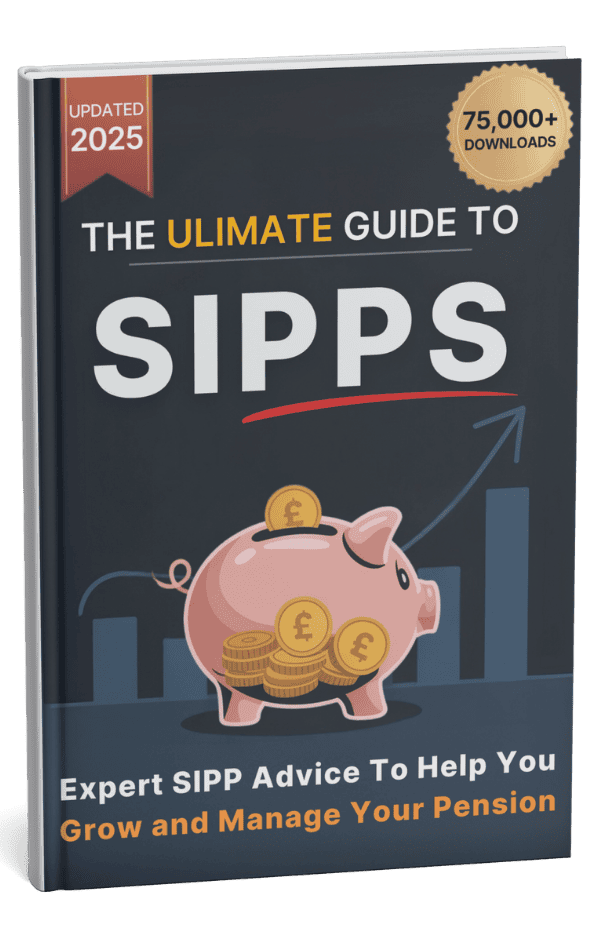
Are SIPPs Safe Investments in 2025? Discover the Crucial Facts
See How Much Your Future Pension Income Could Be In Just 60 Seconds — No Fees, No Obligation.
How Much Could You Unlock?
Why Homeowners Trust Us
Try Our Free Pension Calculator
Quick, Safe Estimate

No Commitments
Key Takeaways
- SIPPs are regulated by the FCA, ensuring providers meet strict standards and act in clients’ best interests.
- FSCS may cover your SIPP up to £85,000 per provider if the firm fails, but not for poor investment performance.
- SIPPs offer flexibility and tax benefits but carry investment, provider, and fraud risks.
- Not all SIPPs or investments within SIPPs are FSCS-protected—always check before investing.
- Diversification, due diligence, and professional advice are crucial for SIPP safety.
- For a full checklist, visit our SIPPs Checklist.
In This Article, You Will Discover:
If you’ve ever wondered, “are SIPPs safe?”; you’re not alone—as of 2025, UK consumers hold over £184 billion in assets within Self-Invested Personal Pensions (SIPPs), a significant increase from approximately £130 billion in 2022.1
Self-Invested Personal Pensions (SIPPs) have become a popular choice for UK investors seeking greater control over their retirement savings.
But with increased flexibility comes increased responsibility—and risk.
At EveryInvestor, our experts uncover the key risks, FSCS protections, and smart strategies for managing your SIPP securely.
Read on to find out the real answer to SIPP safety and what you need to watch out for...
What Is a SIPP?

A Self-Invested Personal Pension (SIPP) is a UK pension product that gives you control over your retirement investment.
SIPPs allow you to choose from a wide range of assets, including funds, shares, bonds, and property.
They are popular for their flexibility and potential for higher returns, but require careful management and understanding of the risks involved.
Are SIPPs Safe? Key Regulatory Protections
SIPPs are regulated by the FCA, which sets strict standards for providers and ensures they act in your best interests.
If your SIPP provider fails, the FSCS may compensate you up to £85,000 per provider, provided the firm and investments are eligible.
However, FSCS protection does not cover losses from poor investment performance or market downturns.
Understanding SIPP Risks in 2025

SIPPs offer flexibility, but with that comes responsibility and risk.
Here are the main risks to consider:
- Investment Risk: The value of your investments can fall as well as rise. Market volatility, interest rate changes, and inflation can all impact your returns.
- Provider Risk: If your SIPP provider goes out of business, you may lose money if your investments are not protected by the FSCS.
- Fraud and Scams: SIPPs can be targeted by fraudsters, especially with unregulated or high-risk investments. Always use FCA-authorised providers and advisers.
- Lack of Diversification: Concentrating your pension in one asset or sector increases your risk of loss.
- Liquidity Risk: Some investments may be hard to sell quickly, especially property or unlisted shares.
- Charges and Fees: High or hidden fees can erode your returns over time.
Is My SIPP Protected Against Losses?
While SIPPs offer potential growth, as mentioned, they don’t guarantee protection against investment losses.
The value of your SIPP can go down as well as up, depending on market performance; however, if your provider fails, protections are in place to safeguard your funds, provided your SIPP is with a regulated firm.
In the event of provider insolvency, your investments should be protected, as they are typically held separately from the provider’s assets.
SIPP Protection: What Mechanisms Are in Place?
SIPPs are protected by several regulatory measures designed to safeguard your retirement funds, and regulated providers must comply with financial conduct standards and manage your funds responsibly.
This includes keeping your assets separate from their operational finances and reducing the risk of your money being affected by provider issues.
The Financial Conduct Authority (FCA) oversees these standards, and while SIPPs carry investment risk, these regulations help prevent misuse of your funds and provide a secure structure for your retirement savings.
What Happens if My SIPP Provider Goes Bust?
If your SIPP provider goes bust and it’s authorised by the FCA and protected by the FSCS, you can claim up to £85,000 in compensation from the FSCS if you were still contributing to your SIPP when the provider defaulted.12

If you’re retired and have purchased an annuity with your SIPP, you can claim 100% of your remaining funds if your provider goes bankrupt.13
How the FSCS Protects Your SIPP
The FSCS is the UK’s statutory compensation scheme for customers of authorised financial services firms.
If your SIPP provider fails and cannot return your money, the FSCS may pay compensation up to £85,000 per person, per firm.
This protection only applies to regulated providers and eligible investments.
High-risk, unregulated, or illiquid investments are not usually covered.
Key Points:
- FSCS protection is free and automatic for eligible customers.
- Not all SIPPs or investments are covered—always check before investing.
- Use the FSCS Pension Protection Checker to confirm your coverage.
FCA Regulation and Provider Safety
The FCA regulates SIPP providers to ensure they treat customers fairly and manage risks responsibly.
Providers must keep your assets separate from their own finances and comply with strict rules on record-keeping, due diligence, and customer care.
You can check if your provider is authorised on the FCA Register.
Best Practices:
- Only use FCA-authorised SIPP providers and advisers.
- Check your provider’s financial health and customer reviews.
- Avoid unregulated investments and introducers.
How to Safeguard Your SIPP
Protecting your SIPP requires a proactive approach.
Here are three key steps to help you manage risk:
- Diversify Your Investments: Spread your pension across different asset classes to reduce risk.
- Monitor Your SIPP Regularly: Review your portfolio, fees, and provider status at least annually.
- Seek Professional Advice: Use an FCA-authorised adviser for guidance on investment choices and risk management.
Common Questions
Yes, but only if your provider and investments are eligible. The FSCS covers up to £85,000 per person, per provider if the firm fails.
Investment losses, provider failure, fraud, lack of diversification, and high fees are the main risks. Not all investments are FSCS-protected.
Use the FSCS Pension Protection Checker and confirm your provider is FCA-authorised.
If your provider is FCA-authorised and FSCS-eligible, you may be compensated up to £85,000. Your investments should be held separately from the provider’s assets.
No. High-risk, unregulated, or illiquid investments are not usually covered. Always check before investing.
Visit our SIPPs Checklist for a comprehensive guide.
High-risk SIPP investments, or alternative investments, are typically non-standard assets that the Financial Conduct Authority doesn’t regulate.
While they may promise a higher return on investment than standard SIPP assets, if high-risk investments underperform, you could lose part or all of your pension pot.
High-risk investments may include the following:
- Contracts for Difference (or CFDs, a government renewable energy incentive15)
- Crowdfunding or peer-to-peer lending
- Currency trading or foreign exchange (Forex)
- Futures, options, and derivatives
- Life settlement funds
- Loans to connected and unconnected parties
- Premium bonds
- Shares in unlisted private companies
- Spread betting
- Unlisted warrants
If a SIPP investment opportunity seems too good to be true, you should proceed with caution and consult an independent financial advisor with investment expertise to avoid any chance of a mis-sold SIPP.
Yes, you can change your mind and cancel your SIPP.
According to the rules set by the Financial Conduct Authority (FCA), you have a right to cancel your SIPP within 30 calendar days.16
There may be fees and charges that apply when you cancel your SIPP within 30 days, and your provider must share this information before you set up your SIPP.
Note
Some SIPP providers may also offer the option to cancel parts of your SIPP setup, which should be clearly stated in their terms and conditions.
Be sure to go through your SIPP provider’s terms and conditions in detail with an independent pensions advisor registered with the FCA before you sign your SIPP contract.
In Conclusion
SIPPs can be a powerful tool for retirement planning, offering flexibility, control, and tax benefits.
However, they are not risk-free.
The safety of your SIPP depends on your provider, your investment choices, and your vigilance in monitoring and managing your pension.
Always use FCA-authorised providers, check FSCS protection, diversify your investments, and seek professional advice to safeguard your retirement savings.
Disclaimer:
All information in this article was accurate as of July 2025. Regulations, FSCS limits, and provider details may change. Always check with your provider and consult a qualified adviser before making decisions.

Found an Error? Please report it here.






 100% private. No pressure. Just friendly guidance.
100% private. No pressure. Just friendly guidance.

